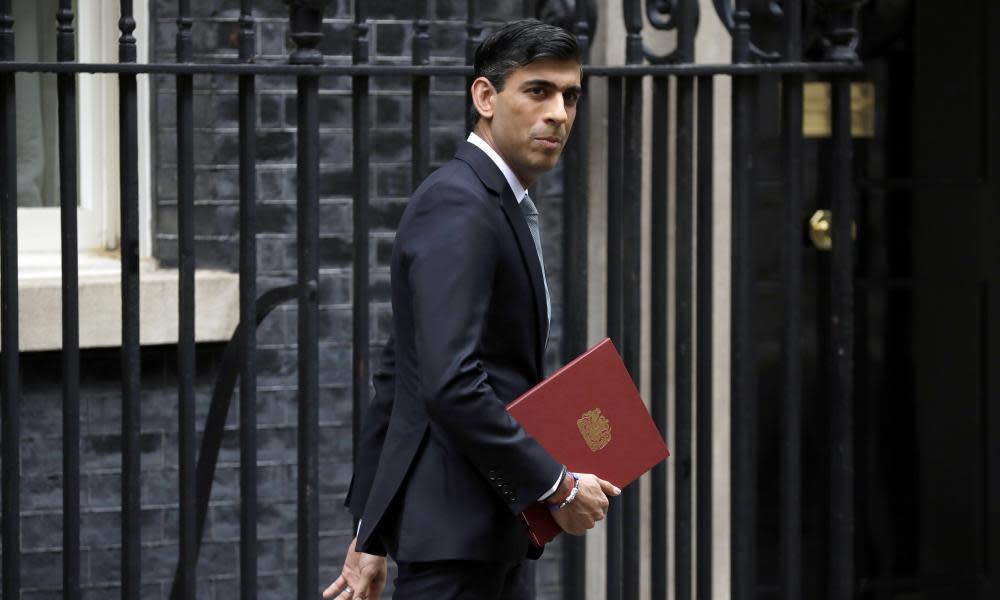If the British understood taxes better, perhaps we would vote for them to be fairer

Tax is the social contract that binds citizens together. Tax is not a “burden”, but the price we pay for civilisation. Vaccines are just the latest reminder of the good that taxes do. But what if most people – even those who think themselves well-informed – know little of the tax they pay, where it goes or how fairly it falls? Democracy depends on citizens understanding what they vote for; ignorance breeds dangerous misconceptions.
TaxLab, an information service unveiled by the Institute for Fiscal Studies, is a wonder of elegant clarity, its impartial explainers revealing what everyone should know: and it’s guaranteed to surprise most people. Two years in construction, the Economic and Social Research Council (ESRC) and the Friends Provident Foundation funded it to create a better-informed electorate. A mouse-click shows that people in Britain pay less tax (in 2019 figures), at 33% of GDP, than the EU average of 39%, while in Denmark it’s 46%. Put in your pay and TaxLab shows exactly where you stand in the income pecking order: people wildly miscalculate, both rich and poor, placing themselves too near the middle. Young people are generous to older people, but if they understood the tax biases benefiting retired people they might be more likely to vote.
Avoiders and evaders rouse the wrath of obedient taxpayers, but people should see the inbuilt injustices and myriad tax reliefs, forever stuck like barnacles to the Treasury, devised as ill-conceived incentives by successive chancellors. David Cameron’s Daily Mail-pleasing marriage bonus is among the daftest.
Helen Miller, the IFS’s deputy director, burns with indignation about bad taxes, failing taxes, unjust taxes, deceitful taxes and, above all, people’s ignorance of them. Let the north not be deceived by “levelling up” while council tax hits them far harder than Londoners. Top-band Londoners pay only three times more than bottom-band northerners, despite property values over eight times higher. Revaluation could see northern bills fall by 20% and London bills rise.
Miller strongly advocates merging income tax and national insurance (NI), equalising their rates: NI is the last vestige of Beveridge’s defunct social insurance that never did what it pretended. Why do low earners start paying it before income tax, while high earners don’t pay it at the top tax rate? Why don’t even high-earning pensioners pay NI? Why are incomes from shares and rents exempt? Why do self-employed people pay less, costing the Treasury £5.9bn? No, it’s not to save white van man, as the Sun claimed, but it’s for very rich “self-employed” partners, such as dentists and City lawyers. The whole farrago is, Miller says, “a deceit”: people think there’s a link between paying in and benefits they get out, but that’s now “vanishingly weak”. NI is unfair income tax in disguise.
But here’s where logic and honesty meet politics. Rationality demands radical tax reforms, but chancellors blench. Merging income tax and NI would reveal the top tax rate to be 53%. No chancellor had dared raise income tax after 1975, until Gordon Brown’s 2010 last gasp lifted the top rate to 50%. Chancellors opt for stealth, afraid of any reforms that create even a few noisy losers. The US president, Joe Biden, leads the world – gradually – to cut global corporate tax-avoiding, but without individual losers.
Louis XIV’s finance minister, Jean-Baptiste Colbert, famously advocated stealing the most feathers from the goose with the least hissing – but things don’t always work out like that. The Boston Tea Party and Margaret Thatcher’s career-ending poll tax are further reasons why chancellors choose irrational but the least unpopular taxes, instead of the wisest or fairest. People hate inheritance tax most, so the Tories promised to raise the threshold to £1m despite soaring unearned wealth inequality – but an Englishman’s untaxed home is his castle.
Voters are unreasonable, demanding Scandinavian services on US-style low tax rates. Miller thinks logic and reason can prevail if only voters have good information. Take VAT: poverty campaigners plead for more exemptions, on food, children’s clothes, tampons etc. But exemptions benefit the high-spending rich most, when Miller says the £50bn cost could be better spent directly on poorer people.
Paul Johnson, the director of the IFS, says there’s a stalemate with our “knockabout politics”. Take the urgent need for social care: “Any tax proposed to pay for it gets condemned as a ‘death tax’ or ‘tax on homes’. Losers make most noise.”
Thatcher said you will always spend the pound in your pocket better than the state will. This remains the key political divide: the left believes our taxes buy everything we value beyond price – health, security, education, beautiful parks and public spaces, fine stadiums and leisure centres, museums and galleries. In a country to be proud of, burdens are fairly shared and no one falls below civilised living standards: that requires fair taxes, fairly raised. The right relies on fiscal ignorance. The IFS is impeccably neutral, but its TaxLab will be a great asset for progressives.
Polly Toynbee is a Guardian columnist

 Yahoo News
Yahoo News 